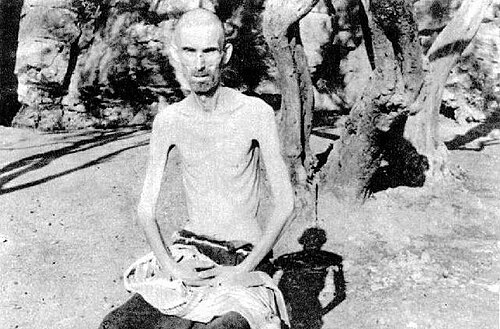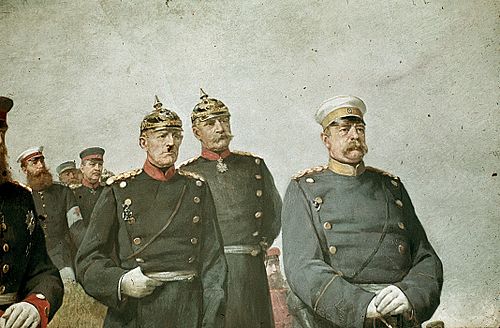Fascismnoun
(historical) A political regime, having totalitarian aspirations, ideologically based on a relationship between business and the centralized government, business-and-government control of the marketplace, repression of criticism or opposition, a leader cult and exalting the state and/or religion above individual rights.
Fascismnoun
(by extension) Any system of strong autocracy or oligarchy usually to the extent of bending and breaking the law, race-baiting and violence against largely unarmed populations.
Fascismnoun
a political theory advocating an authoritarian hierarchical government; - opposed to democracy and liberalism.
Fascismnoun
an authoritarian system of government under absolute control of a single dictator, allowing no political opposition, forcibly suppressing dissent, and rigidly controlling most industrial and economic activities. Such regimes usually try to achieve popularity by a strongly nationalistic appeal, often mixed with racism.
Fascismnoun
Specifically, the Fascist movement led by Benito Mussolini in Italy from 1922 to 1943.
Fascismnoun
broadly, a tendency toward or support of a strongly authoritarian or dictatorial control of government or other organizations; - often used pejoratively in this sense.
Fascismnoun
a political theory advocating an authoritarian hierarchical government (as opposed to democracy or liberalism)
Fascismnoun
an authoritarian and nationalistic right-wing system of government and social organization.
Fascismnoun
(in general use) extreme authoritarian, oppressive, or intolerant views or practices
Fascism
Fascism () is a form of far-right, authoritarian ultranationalism characterized by dictatorial power, forcible suppression of opposition, and strong regimentation of society and of the economy, which came to prominence in early 20th-century Europe. The first fascist movements emerged in Italy during World War I, before spreading to other European countries.
Militarismnoun
An ideology which claims that the military is the foundation of a society's security, and thereby its most important aspect.
Militarismnoun
A focus on, or excessive use of, military force.
Militarismnoun
A military state or condition; a military system; reliance on military force in administering government.
Militarismnoun
The spirit and traditions of military life.
Militarismnoun
The view that military strength, efficiency and values should dominate the country's public policy choices and take precedence over other interests.
Militarismnoun
The policy of maintaining a large military force, even in peacetime; - a term usually used by opponents of such a policy on the assumption that such a large force is unnecessary for national defense.
Militarismnoun
a political orientation of a people or a government to maintain a strong military force and to be prepared to use it aggresively to defend or promote national interests
Militarism
Militarism is the belief or the desire of a government or a people that a state should maintain a strong military capability and to use it aggressively to expand national interests and/or values. It may also imply the glorification of the military and of the ideals of a professional military class and the (see also: stratocracy and military junta).
































